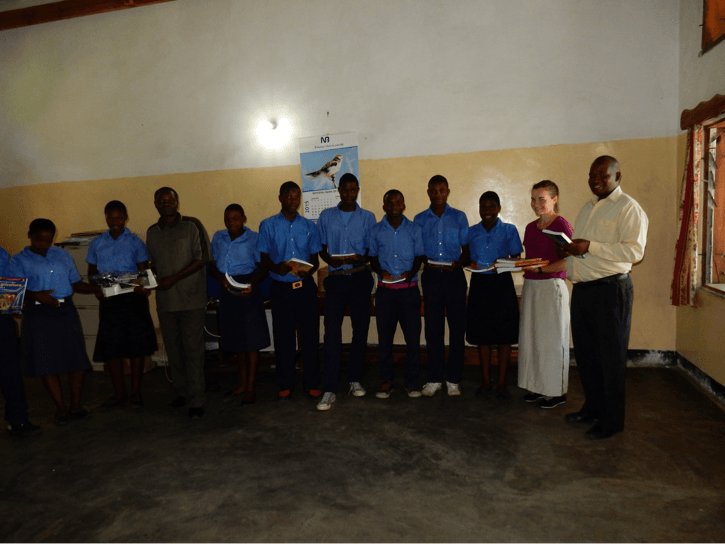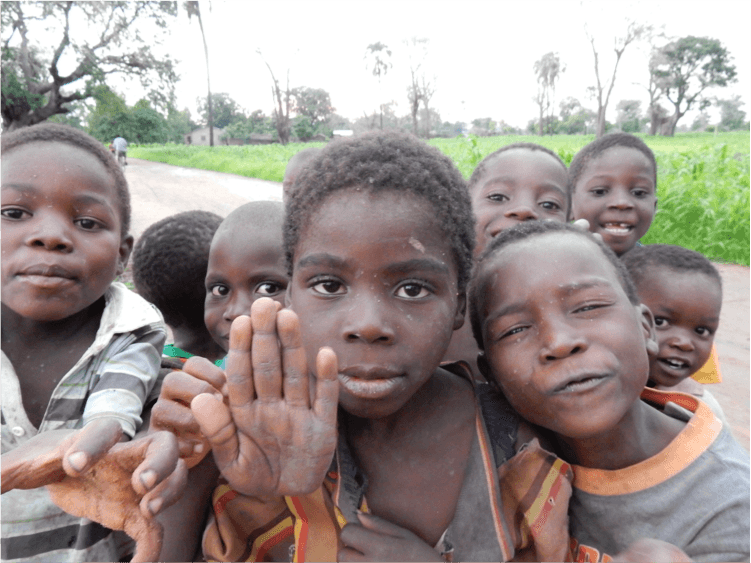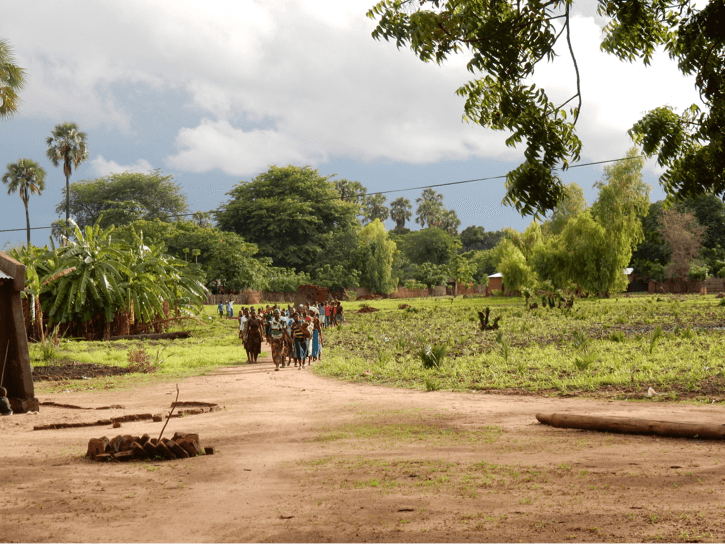Teaching At Gracious
By Celia Haering
Having heard about Malawi and MCV through my elementary school (Chugach Optional, a part of MCV’s School-to-School program), my girl scout troop which also participated in fundraising, and my university (Alaska Pacific University, which periodically sends a class to Malawi), it seemed like time for me to make the trip. With an open future following my college graduation, I decided to come to Malawi to teach at Gracious (MCV’s secondary school) for a three month term.

A wall at Gracious, painted by my APU classmates, dedicated to the Alaska-Malawi relationship
My stay overlaps perfectly with the rainy season here in Malawi, and my first week here saw flooding which destroyed homes and roads, cut off much of the country’s power, and brought about hoards of mosquitoes carrying malaria. Now in the midst of the “hungry season”, the maize supplies from last year are running short (in some cases gone entirely), and the villages are watching the new crop growing each day, hoping there won’t be more flooding which might damage the maize before it is ready next month. In very short order, my eyes have been opened to many difficulties in this country.
Far more incredible than the challenges, though, are the people and their ability to not only survive, but be incredibly happy. I have been amazed to see just how strong the Malawian people are, and witness MCV and other incredible institutions here hard at work improving lives. Between the sewing project and vocational schools, the secondary school, the Open Arms orphanage next door, students participating in performances to educate villages about HIV, and work done to support orphans in the villages, the air of growth and improvement around the MCV area is tangible.

Students, teachers, and staff at Gracious were very grateful to receive new textbooks and lab supplies that I was able to bring with the support of generous donors
I’ve been welcomed at Gracious by friendly students, teachers, and staff. I’ve gotten to experience what it is like to try to teach a room of 90 students for whom English is a second language over the sound of a torrential downpour, watched students put on incredible performances of traditional drumming and dancing, and explained ice hockey to a room of very confused students for whom freezing temperatures are a theoretical. Some of the students walk more than an hour each way to school everyday, and talking to some of them about what their education means to them is inspiring.
I’ve found that when people here ask me how Alaska is different than Malawi, its almost shorter to just list the ways in which it is the same. Never in Alaska have I been late to school because I had to bike through a herd of cows on the road, been asked to hand a stranger’s child out the window of a minibus full of people and chickens packed in like sardines, or danced to drumming alongside hundreds of villagers honoring a visiting chief. But at their cores, both Malawi and my home state are beautiful lands, home to incredibly resourceful and resilient people eager to make the most out of each day.

Boys from Bolera Village who escort me on the way home from school

A procession of women through the village during a celebration